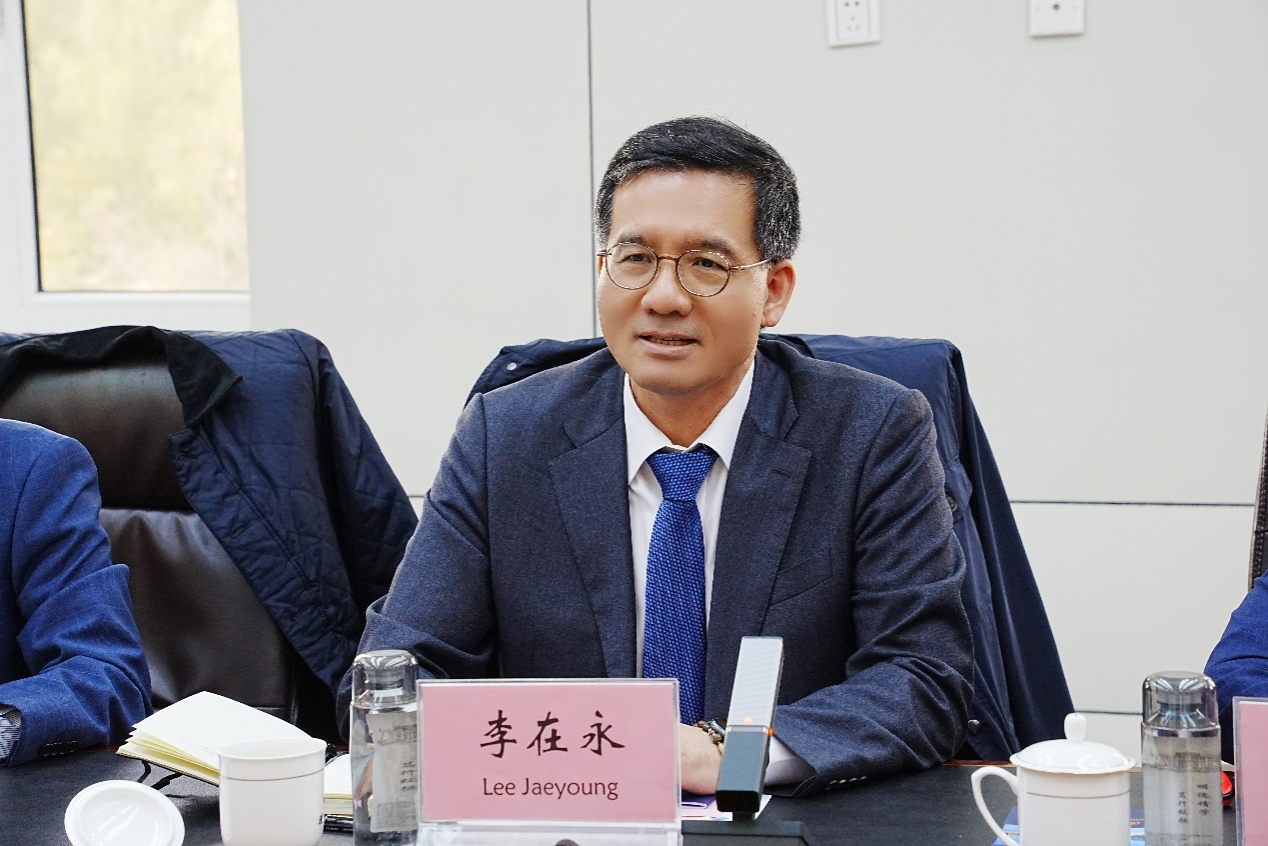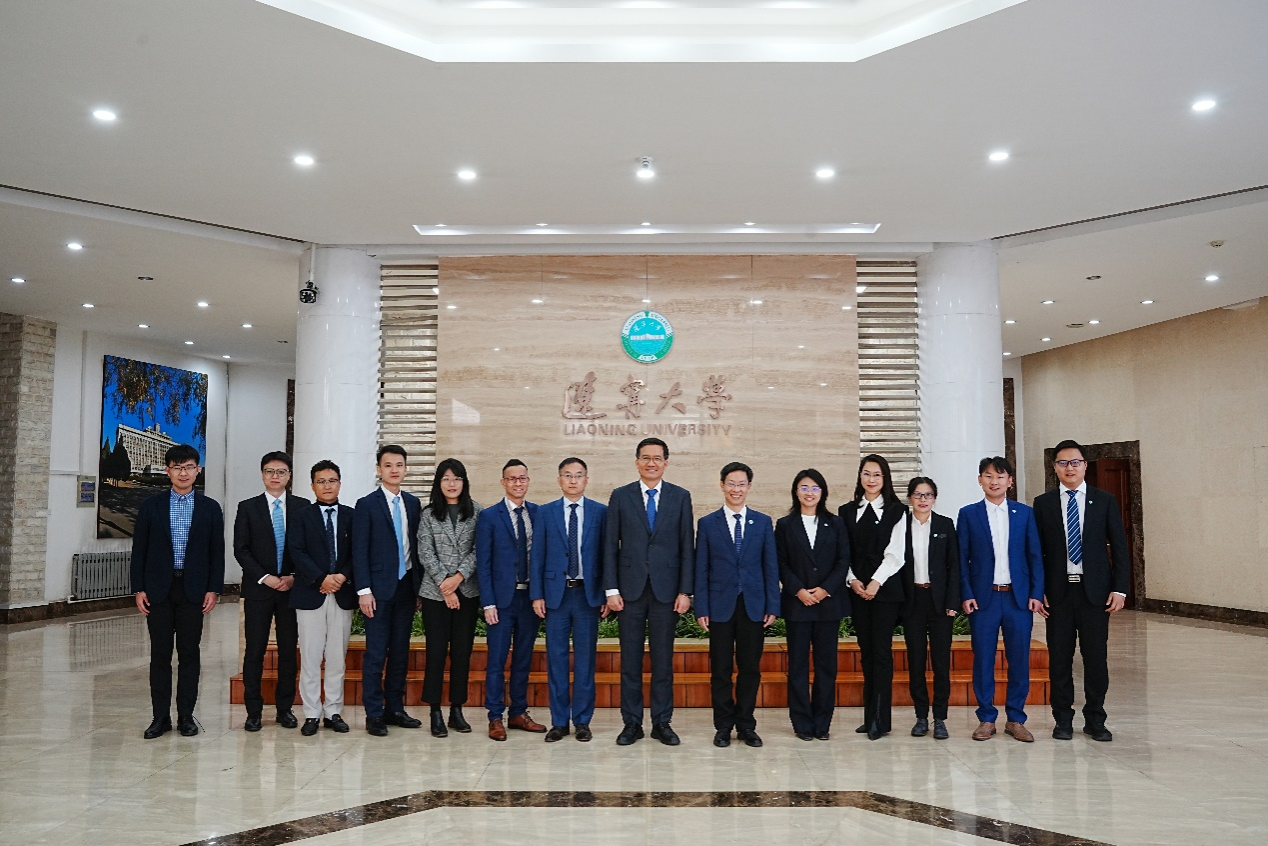On October 29, 2024, Yu Miaojie, the Party Secretary and President of Liaoning University, met with the delegation from the ASEAN+3 Macroeconomic Research Office (AMRO) at the administration building of Liaoning University’s Puhe Campus. The delegation included Lee Jae Young, Director of Country Monitoring at AMRO, senior economists Foo Suan Yong and Zhai Fan, and economists Ji Ke, Kim Jungsung, Sum Dek Joe, Jiao Yang, and Nie Yucheng. The experts engaged in discussions on topics related to high-quality economic development in China, fostering new forms of production, expanding domestic demand, industrial upgrading, population aging, and climate change. The meeting was hosted by Yin Ruyu, Deputy Director of the Office of International Affairs.

Yu Miaojie extended a warm welcome to the visiting delegation from the AMRO. Regarding the economic issues of mutual concern, Yu noted that at the national policy level, the Decision on Further Comprehensive Deepening of Reforms and Advancing the Modernization of Socialism in the Chinese Context, adopted at the Third Plenary Session of the 20th Central Committee of the Party, consists of 15 sections and 60 specific measures, divided into three major modules, with a total of more than 300 reform measures. This marks a new stage in which, under the strong leadership of the Communist Party of China, China has transitioned from high-speed growth to high-quality development.

From the perspective of economic development potential, China possesses four significant advantages. Firstly, China boasts a comprehensive comparative advantage in its industrial chain, with a well-developed industrial system that includes 41 major categories, 207 medium categories, and 666 minor categories, making it the country with the most complete range of industrial types in the world. Secondly, China has the advantage of a unified domestic large market, which helps break down regional barriers, promote deep market integration, and achieve optimal allocation of resources nationwide. Thirdly, China’s rich human resources advantage provides a solid foundation for technological innovation and research and development. Fourthly, the institutional superiority allows for the comprehensive and in-depth implementation of various policies under the strong leadership of the Central Committee, providing robust institutional support for the construction of modernization in the Chinese context.
In terms of regional economic collaborative development, China has successfully promoted the integration processes of the Guangdong-Hong Kong-Macao Greater Bay Area, the Yangtze River Delta, and the Pearl River Delta, and has facilitated coordinated development in the Beijing-Tianjin-Hebei region. Simultaneously, the Chengdu-Chongqing region and the Yangtze River Middle Reaches are advancing together, while the Northeast region is undergoing comprehensive and profound revitalization, and urban clusters in Central and Hanzhong areas are showing strong development momentum. China is committed to building the best business environment to effectively narrow the development gap between northern and southern regions.
Furthermore, Yu Miaojie, from his professional perspective, provided a comprehensive and in-depth analysis and interpretation of China’s fiscal measures such as tax cuts and fee reductions, real estate incentive policies, green energy development strategies, and international trade policies. He pointed out that these policies and measures not only promote China’s domestic economic development but also contribute Chinese wisdom and solutions to international cooperation and the global economy.

Lee Jae Young expressed gratitude for the thoughtful arrangements made by Liaoning University. He noted that since the Reform and Opening Up in 1978, China has gone through an extraordinary development journey over the past three decades, achieving a historic leap from poverty and backwardness to a nation of significant international influence. With a vast human resource base, extensive land area, and a high degree of open policies, China has established a strong manufacturing system, an open-economy structure, and an advanced high-tech industrial ecosystem. The development path China has taken is outstanding, particularly in the realm of poverty reduction, where it has achieved remarkable feats, lifting more than 800 million people out of poverty, a great accomplishment in human history. These achievements are not only a source of pride for China but also provide valuable development experiences for other countries, including Korea, Malaysia, Singapore, and others.

During the symposium, Associate Professor Chen Fu, Deputy Director of the Institute of Environment and Economics at Liaoning University, Assistant Professor Chen Feng from Li Anmin Institute of Economic Research, and Dr. Liu Renliang, Dr. Wang Dandan, and Lecturer Kang Xuezhen from the School of International Economics and International Relations, discussed the challenges and development opportunities facing the Chinese economy within their respective research fields. The discussions mainly focused on the technological and policy difficulties China faces in achieving its carbon neutrality goals, China’s active role and global influence in international trade and finance, particularly the expansion of Chinese brands in the Russian and other international markets. The discussions also covered the innovative development of artificial intelligence and green finance policies and their positive impact on environmental policies and international trade. This symposium facilitated a deeper understanding and exchange of views on China’s economic development internationally, contributing to the construction of broader international cooperation and dialogue.